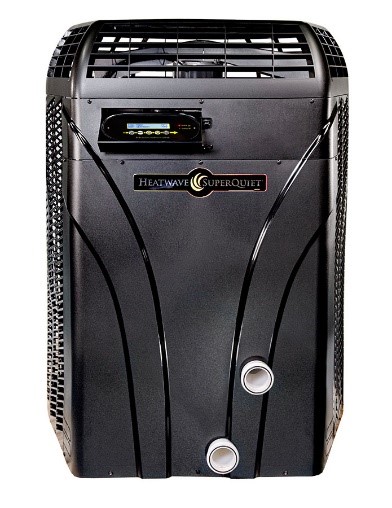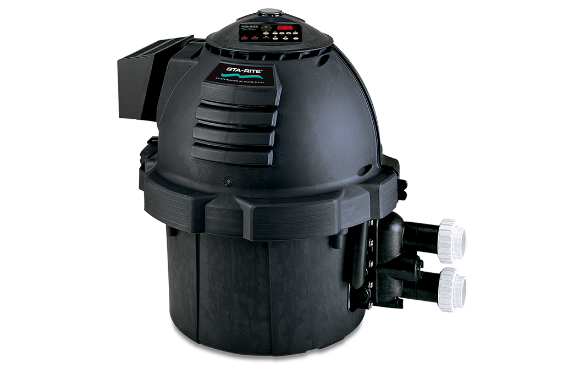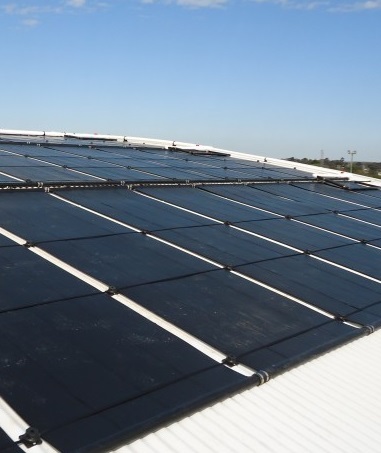 Pool Heater Installation and Service
Pool Heater Installation and Service
If you're looking for a way to make your pool or spa more comfortable during the cooler months, we have pool and spa heating solutions that will accommodate your requirements for space, budget, and ongoing energy costs.
If you have a pool or spa heating system that is not operating correctly, we can service and repair all major brands of gas, electric and solar pool heaters.
Pool and Spa Heater Types
To know which pool heater is the right for you it’s necessary to identify what you will be heating. How large is your pool? Do you also have a spa? Does the pool AND spa share the same water? These are all factors we take into account when advising on the repair and replacement of a pool heating system.
The next factor is the heating source. Does your home have propane or natural gas? Is your electrical service adequate to provide enough power? Do you have roof space for solar panels?
The final factor is how you will use your pool during cold months. Will you use it every day? Do you use your pool or spa at the spur of a moment or do you plan your use days in advance? Is your pool used by anyone other than the homeowner? Knowing the answers to these questions and others will help us provide you with a pool heating system that meets your needs in a dependable and efficient manner.
Whether you’re looking for a gas pool heater, and electric heat pump pool heater, or solar pool heater, we have solutions that will accommodate your requirements for space, ongoing energy costs, and upfront installation costs.
 |
 |
 |
| Gas Pool Heaters | Electric Heat Pump Pool Heaters | Solar Pool Heaters |
Gas Pool Heaters
Gas pool heaters typically heat faster and heat hotter than either heat pumps or solar heater installations for residential pools. Gas heater BTU output typically ranges from 250,000 BTUs to 400,000 BTUs or 2 to 3 times the max BTU output of a residential heat pump. They also can operate in nearly any temperature range that Florida is exposed to, enabling homeowners to heat their spa or pool to their desired temperature regardless of the ambient air temperature.
In addition to being the default option for heating spas, gas heaters are also frequently used as a secondary heating source on pools with a combined heating system such as a solar heater or a heat pump in use as the primary pool heater. In such a combined system, the gas heater would only turn on when the ambient air temperature dropped to a level below the heating capacity of the primary solar heater or heat pump, thus taking over for the primary system as it deactivates.
Because gas heaters require a fossil fuel to operate you will have to separately install and manage the equipment for the gas supply lines. This often entails contacting a municipal gas utility or local company to have them run a gas supply line to your property and to setup the supply lines for your various appliances. It also may entail installing an on-site propane tank for those communities where an underground gas supply utility doesn’t exist.
Gas pool heaters come in both liquid propane and natural gas burning varieties but you will need to know which type of fuel you will be using before you make a gas heater purchase.
They have small space requirements in general but gas heaters must have clearance at least 4 feet horizontally away from windows and doors and vents into buildings as a precaution against carbon monoxide entering a home or facility.
Gas heaters are an extremely common pool appliance and are the default recommended product for heating in ground spas and as the best option for a low temperature secondary heating source for combined heating source pools.
Solar Pool Heaters
Solar pool heaters are by far the least expensive to operate on an ongoing basis. Their energy cost is $0 per month. They do however incur costs on installation, maintenance/repairs and they do require attachments to roofs which can introduce potential roof leaks and their associated repair costs, or the installation of rail systems on land taking up large areas of yards. Additionally, leaking solar heater panels can drain pools if no one is home to observe a leak in progress.
Solar heaters are well fitted to be used in warmer climates as they typically top out at being able to heat a pool 18 degrees above ambient air temperature. This means that if you want to keep a pool at 85 degrees Fahrenheit then the lowest ambient air temperature which this type of heater can accommodate is: 67 degrees Fahrenheit.
This 18 degree max heating capacity is also why solar heaters are not used to heat spas under normal circumstances and why many pools that use solar heaters also have a secondary heating source to activate during those parts of the year where the temperature drops below the solar heater’s functional heating range.
Electric Heat Pump Pool Heaters
Heat pump pool heaters are primarily electrically powered heating units that operate on similar principals as a home central air conditioning system.
An electric heat pump is essentially a reverse air conditioner for your pool. It takes ambient air heat and transfers that energy to the water. There are even pool heat pump models that can cool a pool if desired.
An electric heat pump produces much lower amounts of heat when compared to a fossil fuels gas heater and as such are not ideal for spas or for times or climates where the ambient air temperature drops much below 50 degrees Fahrenheit. Because electrical heat pumps operate without the added costs of fossil fuels using one can often heat pools much more cost effectively than using a gas heater AND they can operate at lower temperature ranges than a solar heater.
Often residential pool heat pumps output ranges from 95,000 to 140,000 BTUs of energy output.






